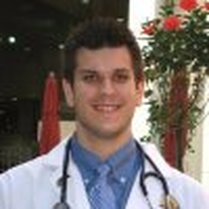On December 6, 2013 an anesthesiology resident, Dr. Timothy Sutton, was found in full cardiac arrest in a bathroom in the Cardiovascular Center of the University of Michigan Hospitals. He had an empty syringe in his hand and an antiseptic wipe after having injected himself with Fentanyl and possibly morphine that was intended for use on his patients [1]. Nurses on the scene began CPR and were able to resuscitate him. He was transferred to the hospital and recovered.
A nurse called for an environmental services person after she found the bathroom locked and was told that someone had been in there for a very long time and no one responded when she knocked on the door. Environmental Services unlocked the door and Dr. Sutton was found unconscious and without a pulse on the floor at 12:50 PM and efforts to resuscitate him began immediately. Hospital security responded to the scene but police were not called until 1:39 PM. By that time Dr. Hutton had been moved to another room and environmental services had cleaned the bathroom. His drug kit passed through several hands before being given to UM police.
Dr. Sutton entered into a 3 month inpatient addiction treatment program at Domino Farms soon after his discharge from the hospital.
He confessed to UM police detective Pillsbury that he had stolen the drugs from a kit that each anesthesiology resident is issued each day. The resident is supposed to keep a log of what drugs and what dosages are given to each patient during the day and the kit is returned to the pharmacy at the end of the day, where the pharmacist reconciles the drugs issued, drugs used and drugs returned. He said that he had injured his neck earlier in his career and was in chronic pain. He claimed that he had only stolen drugs for about a week prior to this incident.
Dr. Sutton accepted a plea deal and was found guilty of larceny from a building and use of a controlled substance. He is awaiting sentencing on April 25, 2014.
This occurred on the same day that the dead body of Carla Delvecchio, a Cardiovascular ICU nurse had been discovered in another bathroom at UM hospitals. Eventually her autopsy revealed that she had died of an overdose of drugs that she had stolen from the hospital [2].
This case has not been reported in other local media but it raises some important questions about how drug diversion is handled at UM hospitals.
1. Have the healthcare workers in these two cases been tested for infectious diseases that could have been transmitted to patients?
2. Has the hospital investigated whether or not any patients were harmed by not receiving the drugs that had been prescribed for them?
3. Are there still problems with timely reporting between Hospital Security and Campus Police?
4. Are Hospital Security staff trained to protect a crime scene while waiting for police investigation?
5. Does the UM hospitals system have a good program to prevent, deter and investigate drug diversions, including appropriate drug testing policies?
6. Is the hospital reporting these crimes to the appropriate authorities, particularly to law enforcement and the DEA?
[1] Timothy Sutton police reports
A nurse called for an environmental services person after she found the bathroom locked and was told that someone had been in there for a very long time and no one responded when she knocked on the door. Environmental Services unlocked the door and Dr. Sutton was found unconscious and without a pulse on the floor at 12:50 PM and efforts to resuscitate him began immediately. Hospital security responded to the scene but police were not called until 1:39 PM. By that time Dr. Hutton had been moved to another room and environmental services had cleaned the bathroom. His drug kit passed through several hands before being given to UM police.
Dr. Sutton entered into a 3 month inpatient addiction treatment program at Domino Farms soon after his discharge from the hospital.
He confessed to UM police detective Pillsbury that he had stolen the drugs from a kit that each anesthesiology resident is issued each day. The resident is supposed to keep a log of what drugs and what dosages are given to each patient during the day and the kit is returned to the pharmacy at the end of the day, where the pharmacist reconciles the drugs issued, drugs used and drugs returned. He said that he had injured his neck earlier in his career and was in chronic pain. He claimed that he had only stolen drugs for about a week prior to this incident.
Dr. Sutton accepted a plea deal and was found guilty of larceny from a building and use of a controlled substance. He is awaiting sentencing on April 25, 2014.
This occurred on the same day that the dead body of Carla Delvecchio, a Cardiovascular ICU nurse had been discovered in another bathroom at UM hospitals. Eventually her autopsy revealed that she had died of an overdose of drugs that she had stolen from the hospital [2].
This case has not been reported in other local media but it raises some important questions about how drug diversion is handled at UM hospitals.
1. Have the healthcare workers in these two cases been tested for infectious diseases that could have been transmitted to patients?
2. Has the hospital investigated whether or not any patients were harmed by not receiving the drugs that had been prescribed for them?
3. Are there still problems with timely reporting between Hospital Security and Campus Police?
4. Are Hospital Security staff trained to protect a crime scene while waiting for police investigation?
5. Does the UM hospitals system have a good program to prevent, deter and investigate drug diversions, including appropriate drug testing policies?
6. Is the hospital reporting these crimes to the appropriate authorities, particularly to law enforcement and the DEA?
[1] Timothy Sutton police reports
| timothy_sutton_police_reports.pdf |

 RSS Feed
RSS Feed